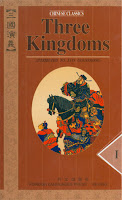High virtue by obliging not acquires moral force.
Low virtue obliges always and thus lacks moral force.
High virtue neither strives nor acts for its own ends.
Low virtue does not strive but acts for its own ends.
 Dào is usually translated as way, road, channel, path, doctrine, or line and by Chinese opinion cannot be obtained as virtue cannot be approached. The legendary Chinese sovereign and cultural hero Yellow Emperor (reigned from 2.696–2.598 BE) said that once Dào is lost, virtue arises; once virtue is lost, humaneness arises; once humaneness is lost, righteousness arises; once righteousness is lost, formalism arises. But formalism is the flowery representation of Dào and the beginning of disorder.
Dào is usually translated as way, road, channel, path, doctrine, or line and by Chinese opinion cannot be obtained as virtue cannot be approached. The legendary Chinese sovereign and cultural hero Yellow Emperor (reigned from 2.696–2.598 BE) said that once Dào is lost, virtue arises; once virtue is lost, humaneness arises; once humaneness is lost, righteousness arises; once righteousness is lost, formalism arises. But formalism is the flowery representation of Dào and the beginning of disorder. 







